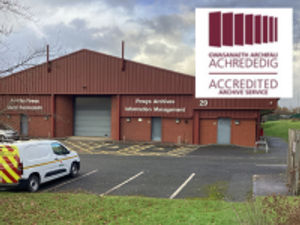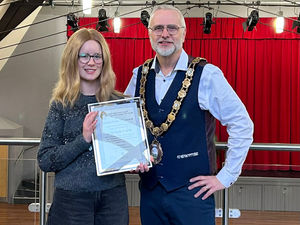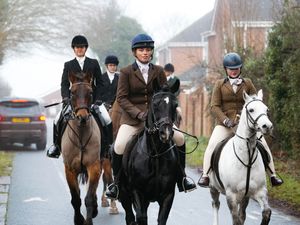Council to decide on new supported living scheme
People with learning disabilities and mental illnesses currently housed outside Shropshire due to a lack of suitable accommodation could soon be moving into a state-of-the-art supported living complex.
Shropshire Council has revealed plans to build eight one-bed units at Greeenacres Farm in Walford Heath, near Shrewsbury, which currently provides day services for adults with learning disabilities to learn about agriculture and horticulture.
The groundbreaking scheme has been drawn up to allow people with complex care needs to move back to their home county to be close to family and friends, while saving the council significant sums of money in costly out-of-county care packages.
People identified as being potential residents for the units currently cost the council between £90,000 and £320,000, and can be placed anywhere in England and Wales.
A report prepared ahead of a full council meeting on Thursday asks members to approve the £3.125 million project, which will be funded by borrowing from the Public Works Loan Board, and preparation of a planning application.
The report, by adult social care director Andy Begley and project manager Michelle Davies, says: “There is a shortage of suitable accommodation in Shropshire that delivers the needs for highly complex individuals, in addition to more expensive out of county placements.
“We need to increase the amount of available supported living accommodation for people with a learning disability, autism, mental health or those with a multiple conditions/diagnosis.
“We acknowledge that having a range of bespoke housing options based on each individual’s needs and preferences has a positive impact on health and wellbeing.
“For such complex needs individuals, previous experience identifies rural areas achieve better results because they are better supported in a rural setting initially when coming out of secure residential settings.
“One of the reasons the location was chosen is the belief that rural settings are better because of the reduced noise levels, leading individuals to tend to feel less overwhelmed by their surroundings. This ultimately leads to a more settled, calming and stable living environment and behaviours.”
An outline business case for the project says five potential occupants for the units have already been identified, and based on the current cost of their care packages, the scheme could save the council £289,000 a year. The savings are put down to a reduction in staffing hours as carers can be shared.
It is anticipated the units will be leased to a housing association for £60,000 a year, while the loan repayments of £179,000 a year and maintenance of £5,000 will create a net revenue of £165,000.
There is potential for a further saving of £418,000 a year based on the anticipated care costs of three other prospective residents who are not currently funded by the council’s adult social care budget but are likely to be in the near future.
Each unit will include a living area, bedroom, bathroom and kitchen area, with communal and outdoor areas also provided.
Under the plans, a house on the farm will also be converted into a multi-use building where residents can go for movie nights, fitness classes and other activities.
An internal courtyard will be created along with outdoor space including a running track and outdoor gym.
Staff will be on site around the clock and it is anticipated the scheme will create around 30 jobs.
The units will use assisted living technology to support residents and enable them to carry out tasks independently.
The report says: “Greenacres is influenced by and will use a wide range of stand-alone, supportive but unobtrusive services and equipment, from telecare, telehealth, monitors, sensors, seizure monitors, to more sophisticated systems.
“Assistive technology will present adult social care with a range of evidence and data that will be continually monitored, identify any problems or trends so corrective urgent action can be taken to safeguard everyone.
“It includes computer software, handheld devices or video call systems that increase social interaction and family contact.
“Using assistive technology to support personalisation in social care can help individuals to complete daily tasks and structure their daily (day and night) routine, such as personal care, cooking and laundry.”
Councillors will be asked to approve the project at Thursday’s meeting.
Councillor Dean Carroll, portfolio holder for adult social care, said: “We know there is a real need for specialist good quality homes for highly complex and vulnerable people, that are not currently available in our county.
“Due to the shortage of suitable accommodation we are proposing to build bespoke accommodation, designed to help people to develop their independent living skills within a community setting.
“I am fully supportive of this innovative project as, not only will it support the health and wellbeing and skills of our most vulnerable, but it will also help increase the supply of affordable and social housing.
“This in turn will bring economic benefits within Shropshire’s economy, and provide a range of financial opportunities to the council in respect of the current housing stock for some of the most vulnerable people adult social care supports.”





